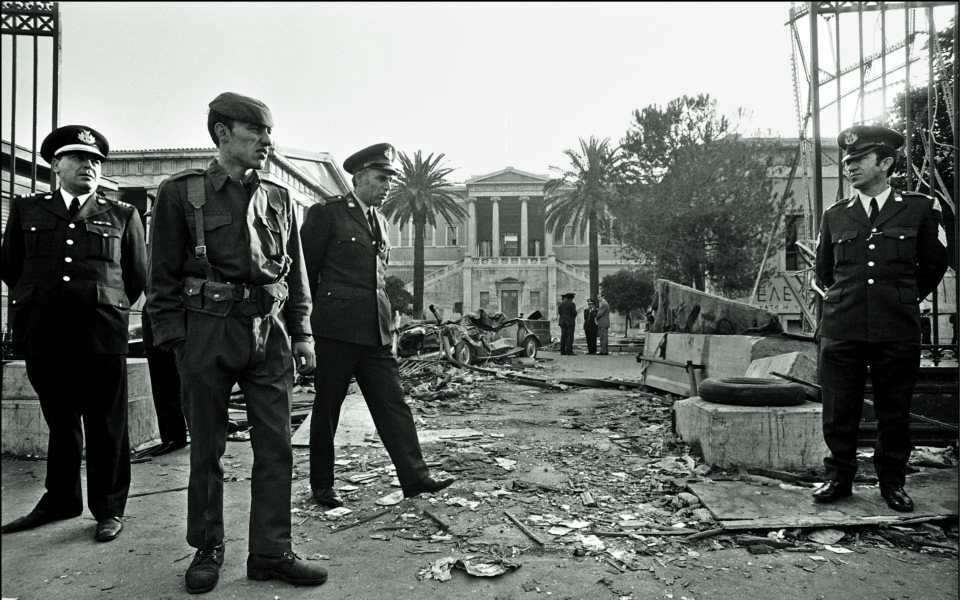The isolation of the regime

According to the conventional interpretation of the events that transpired in 1973-1974, it was not the Polytechnic Uprising that actually precipitated the military dictatorship’s downfall but the Turkish invasion of Cyprus eight months later, which was prompted by the overthrow of the Cypriot government of Archbishop Makarios III by Dimitrios Ioannidis’ regime in Athens.
No matter how strong the belief that the junta was not overthrown by a popular uprising or by the forces of the resistance against the regime expresses the traditional skepticism of conservative circles toward the masses, it is, in principle, correct. Divided, the resistance movement suffered a heavy blow after the Polytechnic Uprising.
The fall of the dictatorship, instead, was caused by divisions within its ranks, which peaked with Turkey’s Operation Attila against Cyprus. This was more than evident in the transcripts published by Kathimerini Executive Editor Alexis Papachelas in his last book, “A Dark Room,” of a completely incoherent Ioannidis ranting and raving in the regime’s war room right after the Turkish invasion.
I do not doubt the truth of the above interpretation, but I do want to highlight one parameter which, I believe, has been unfairly downplayed, and that is the impact of the Polytechnic Uprising.
The first and most important consequence of the November uprising was that it halted the progress of the “liberalization” plan set into motion by Georgios Papadopoulos, first by ejecting the monarchy, then by decreeing a general amnesty to his jailed political opponents and third by installing the Spiros Markezinis government.
When it rammed through the gates of the Athens Polytechnic, the notorious tank showed that, in contrast to what happened in Spain two years later, there was no room in Greece for a political mutation of the dictatorship. There was no dilemma here except for: dictatorship or democracy?
On the other hand, it appears that Papadopoulos’ ousting by Ioannidis on November 25, 1973, had been planned much earlier by the hardcore elements of the junta regime. The events at Athens Polytechnic simply accelerated it.
In the medium term, however, the effect of the student uprising on the flow of events was pivotal in the following sense: It was, in essence and as a spectacle, so big and so powerful that it isolated the regime domestically and internationally more surely than it had ever been isolated since seizing power in 1967.
Domestically, as demonstrated by the case of the unconscionable Spiros Zournatzis, who was minister to the prime minister and regime spokesman at the time, and the incident with journalist Nikos Mastorakis, any possibility of cooperation with respectable politicians disappeared completely for the regime. The Ioannidis junta could henceforth only rule by force.
On the international stage, the regime’s isolation was total. With the most scathing example being the letter by Makarios in early July 1974, the messages coming in from Europe and the United States were that the dictatorship was on its own, in a world that was not willing to tolerate it.
As the history of dictatorships stretching back in time has taught us, no regime, no matter how ruthless, can survive without some support, domestically or internationally. And this, to my mind, is the Polytechnic Uprising’s greatest contribution: the complete isolation of the dictatorship.
Nikos Alivizatos is emeritus professor of law at the Athens University School of Law.





